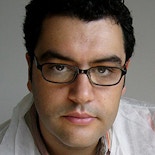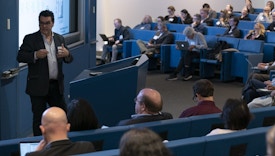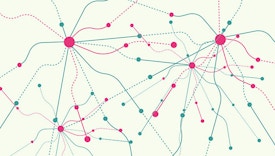
Rui Costa, D.V.M., Ph.D.
President and Chief Executive Officer, Allen Institute
SFARI Investigator WebsiteRui Costa is the president and CEO of the Allen Institute in Seattle. He received a D.V.M. from the Technical University of Lisbon and a Ph.D. from the Graduate Program in Areas of Basic and Applied Biology at the University of Oporto, Portugal. He conducted graduate studies with Alcino Silva (University of California, Los Angeles) and postdoctoral research with Miguel Nicolelis (Duke University). After his postdoctoral training, Costa became section chief at the National Institutes of Health in 2006 and investigator of the Champalimaud Neuroscience Programme in 2009.
In 2010, Costa received a European Research Council Starting Grant and the Seeds of Science Prize for Life Sciences. In 2012, he became an International Early Career Scientist of the Howard Hughes Medical Institute and received the Young Investigator Award from the Society for Neuroscience. In 2014, he was elected a member of the European Molecular Biology Organization (EMBO), received the Silver Medal for distinct services from the Ministry of Health, Portugal, and was awarded the Order of Sant’Iago da Espada from the President of the Republic, Portugal. He was also awarded a Consolidator European Research Council grant and the Young Investigator Career Award from the Jean-Louis Jeantet Foundation. He served as deputy director of the Champalimaud Neuroscience Programme from 2011 to 2013 and became a director of Champalimaud Foundation Research in 2014.
In 2016, Costa became a professor of neuroscience at the Mortimer B. Zuckerman Mind Brain Behavior Institute at Columbia University. His laboratory studies the neurobiology of action in health and disease. Researching actions means studying the way we do things, which is different than the way we remember stimuli, facts and events. While some actions are innate (e.g., swallowing or breathing), most are learned by trial and error throughout life. Costa’s laboratory uses genetic, electrophysiological, optical and behavioral approaches to investigate the mechanisms underlying the generation and learning of novel actions in both healthy and disease states.



